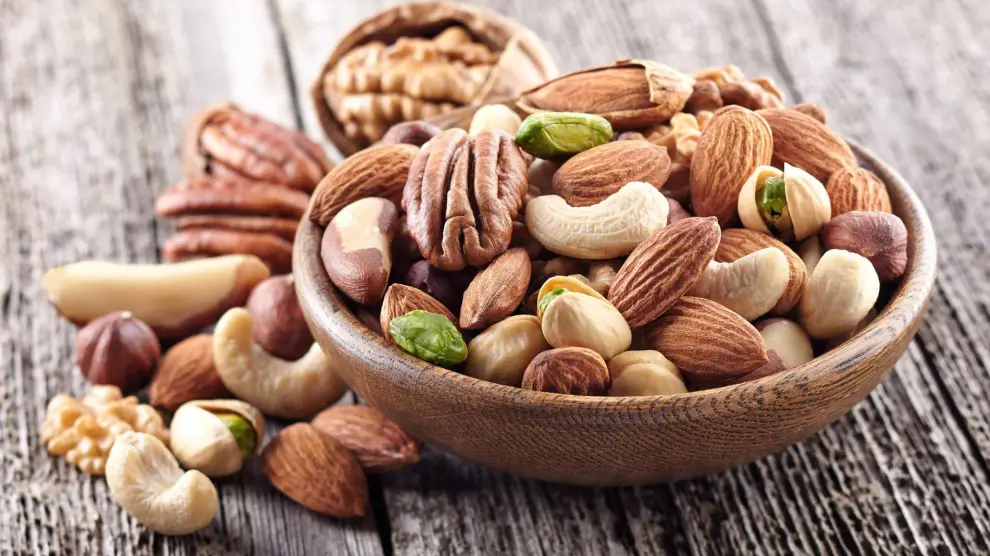Controlling blood glucose levels isn’t limited to avoiding refined sugar. Many foods contain sugar, both naturally occurring and added, that don’t seem to. Carbohydrates (especially those that are quickly absorbed), on the other hand, will turn into sugar in the body and cause glucose spikes, so it’s also important to monitor their intake. In other words, maintaining blood sugar balance is much more complicated than simply avoiding certain foods.
On the other hand, there are those products that will help, on their own or in combination with others, to prevent glucose levels from rising too high. As a general rule, the diet for those with difficulty controlling their blood sugar should be low in fast-absorbing carbohydrates and low in slow-absorbing ones; avoid ultra-processed foods that contain large amounts of sugar; and always accompany meals with some fiber, which will slow the entry of sugar into the blood. An expert gives us the keys.
Some tips to control blood sugar
Integrative and sports nutritionist Paloma Quintana, a graduate in Food Technology and director of the Fit con Q clinic, begins by explaining some key points to keep in mind to manage blood sugar levels as best as possible. “The first and most important thing is to emphasize the importance of managing blood sugar spikes through a low-carb diet. What many people don’t know, and as shocking as it may be, is that protein and fat work perfectly together to neutralize these sudden spikes in blood sugar.”
The second point to consider, according to the expert, refers to “keeping body fat in check, since obesity has been shown to cause poorer blood sugar regulation and imbalanced metabolic profiles. Unlike body fat, which should be reduced, muscle mass should be increased, which contributes to maintaining a healthy weight.” She goes further, recommending ” good rest and proper emotional management: stressful emotional disturbances, or having a bad night, will affect a diabetic person much more than someone who isn’t.”
The less processed the food, the better for sugar
In a world dominated by stress and haste, ultra-processed foods solve the lack of time to cook. However, they are much less healthy than fresh produce for cholesterol, cardiovascular health, diabetes, and inflammation—the great epidemic of modern times.
And some more advice: “No juices (they eliminate fiber and the peak is higher) or purées, and raw vegetables are always better than cooked. It’s very important to control your blood sugar; insulin sensitivity changes from morning to night. It’s important to avoid foods with a higher glycemic index as the day progresses (they are metabolized better in the morning).”
The diet against blood sugar spikes, in 6 steps
Below, Paloma Quintana explains the six foods that would help control blood sugar more specifically if we incorporate them into our diet regularly. The first of these is the egg, “because it has a super-beneficial combination of protein and fat. It’s best to eat it grilled or in an omelet, at any time of day: for breakfast, as a snack, or at any meal, no problem.”
Also worth considering for balancing glucose are oily fish, “preferably small fish like sardines and mackerel. The reason is similar to the previous one: it has a great balance of protein and fat (also healthy, with omega-3 fatty acids).” In third place in the nutritionist’s ranking are nuts and legumes. “The former contains a very beneficial type of fiber: insoluble fiber. Legumes also contain it, although in smaller amounts. A plate of lentils with vegetables and a fatty cut of meat would be ideal.”
Apple cider vinegar and pickles: “A tablespoon dissolved in a glass of warm water first thing in the morning on an empty stomach is a real safeguard against blood sugar spikes at breakfast. An aperitif with some olives before lunch is the same. Afterwards, using cinnamon in cooking is perfect because it’s rich in polyphenols and antioxidants like catechins, which attack insulin receptors in cells and suppress insulin resistance. You can add it to anything you can think of, not just desserts. Finally, try green leafy vegetables like lamb’s lettuce, slaw, and spinach before any meal.”























+ There are no comments
Add yours